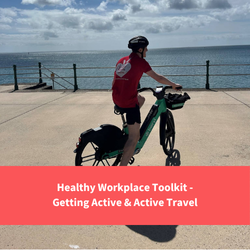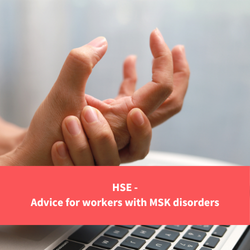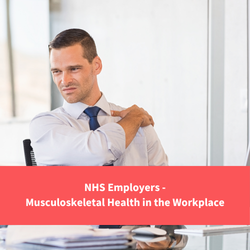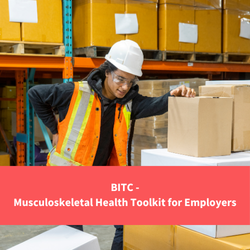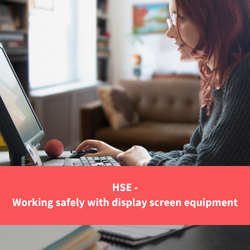Protect musculoskeletal health in the workforce
Musculoskeletal (MSK) conditions, such as back pain, repetitive strain injuries, and joint issues, are one of the leading causes of workplace absence and reduced productivity.
Being sedentary in the workplace, poor posture and repetitive tasks are all factors that can contribute to the development and worsening of MSK issues.
By taking positive, practical and proactive steps, employers can create a healthier environment that reduces and prevents MSK issues whilst successfully supporting staff who are already affected.
How to achieve this:
- Encourage regular movement throughout the day
- Provide access to support
- Train managers to recognise MSK risks and increase confidence in supporting MSK issues
- Workspaces are built with MSK in mind
Further Information:
Encourage regular movement throughout the day:
- Promote a “sit less, move more” culture
- Encourage staff to take regular breaks to stretch and change position
- Encourage standing meetings, walking meetings, walking breaks etc
- Promote stretching at regular intervals throughout the day
- Offer regular person-led mobility/yoga/stretching sessions – is there a specific staff member who could take the lead?
- Look into the use of calendar prompts to remind staff to get up and move after specific periods of inactivity
Helpful Resources:
Provide access to support:
- Include a specific section on MSK health in your health/occupational health policies
- Do you have occupational health support in place for those dealing with MSK issues? Access to physio appointments etc
- Signpost to NHS and other local services and support groups
- Allow time for staff to attend MSK based health appointments
Helpful Resources:
Train managers to recognise MSK risks and increase confidence in supporting MSK issues:
- Look into training for line managers to help them identify workplace risks and early signs of MSK issues
- Create a supportive environment where open conversations about discomfort, pain and other aspects of MSK conditions are encouraged
- Managers are trained and have the knowledge and confidence to successfully support those with MSK issues in the workplace to manage their conditions, and put in place appropriate reasonable adjustments for the individual
- Include MSK health in 1:1s
- Managers should ensure that remote workers have up to date DSE assessments and regular wellbeing check-ins
Helpful Resources:
Workspaces are built with MSK in mind and ergonomics are provided where appropriate:
- Are sit-stand desks, anti-fatigue mats, and other ergonomic tools made available?
- Provide adjustable chairs, desks, and monitor stands to support staff posture
- Conduct regular workstation assessments for all staff, including those working remotely
- Regularly survey/assess employees to receive their input in the tools and resources available to ensure needs are being met
- Are all manual handling tasks risk-assessed? Do staff receive training?
Helpful Resources:

